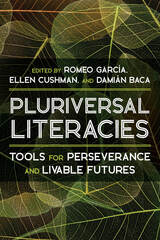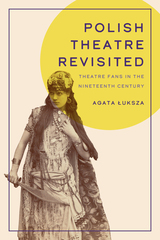4 books about Findlen, Paula
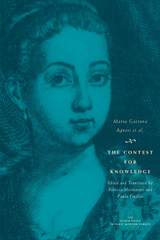
The Contest for Knowledge
Debates over Women's Learning in Eighteenth-Century Italy
Maria Gaetana Agnesi, Diamante Medaglia Faini, Aretafila Savini de' Rossi, and the Accademia de' Ricovrati
University of Chicago Press, 2005
At a time when women were generally excluded from scholarly discourse in the intellectual centers of Europe, four extraordinary female letterate proved their parity as they lectured in prominent scientific and literary academies and published in respected journals. During the Italian Enlightenment, Maria Gaetana Agnesi, Giuseppa Eleonora Barbapiccola, Diamante Medaglia Faini, and Aretafila Savini de' Rossi were afforded unprecedented deference in academic debates and epitomized the increasing ability of women to influence public discourse.
The Contest for Knowledge reveals how these four women used the methods and themes of their male counterparts to add their voices to the vigorous and prolific debate over the education of women during the eighteenth century. In the texts gathered here, the women discuss the issues they themselves thought most urgent for the equality of women in Italian society specifically and in European culture more broadly. Their thoughts on this important subject reveal how crucial the eighteenth century was in the long history of debates about women in the academy.
The Contest for Knowledge reveals how these four women used the methods and themes of their male counterparts to add their voices to the vigorous and prolific debate over the education of women during the eighteenth century. In the texts gathered here, the women discuss the issues they themselves thought most urgent for the equality of women in Italian society specifically and in European culture more broadly. Their thoughts on this important subject reveal how crucial the eighteenth century was in the long history of debates about women in the academy.
[more]
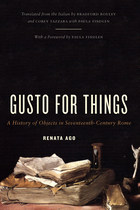
Gusto for Things
A History of Objects in Seventeenth-Century Rome
Renata Ago
University of Chicago Press, 2013
We live in a material world—our homes are filled with things, from electronics to curios and hand-me-downs, that disclose as much about us and our aspirations as they do about current trends. But we are not the first: the early modern period was a time of expanding consumption, when objects began to play an important role in defining gender as well as social status. Gusto for Things reconstructs the material lives of seventeenth-century Romans, exploring new ways of thinking about the meaning of things as a historical phenomenon.
Through creative use of account books, inventories, wills, and other records, Renata Ago examines early modern attitudes toward possessions, asking what people did with their things, why they wrote about them, and how they passed objects on to their heirs. While some inhabitants of Rome were connoisseurs of the paintings, books, and curiosities that made the city famous, Ago shows that men and women of lesser means also filled their homes with a more modest array of goods. She also discovers the genealogies of certain categories of things—for instance, books went from being classed as luxury goods to a category all their own—and considers what that reveals about the early modern era. An animated investigation into the relationship between people and the things they buy, Gusto for Things paints an illuminating portrait of the meaning of objects in preindustrial Europe.
[more]
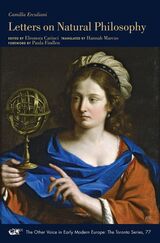
Letters on Natural Philosophy
The Scientific Correspondence of a Sixteenth-Century Pharmacist, with Related Texts
Camilla Erculiani
Iter Press, 2020
In her Letters on Natural Philosophy, published originally in Krakow in 1584, Camilla Erculiani proposed her new theory of the natural causes of the universal flood in the biblical book of Genesis. Erculiani weaves together her understanding of Aristotelian, Platonic, Galenic, and astrological traditions and combines them with her own observations of the world as seen from her apothecary shop in sixteenth-century Padua. This publication brought Erculiani to the attention of the Inquisition, which accused her of heresy, silencing her for centuries.
This edition presents the first full English translation of Erculiani’s book and other relevant texts, bringing to light the cultural context and scientific thought of this unique natural philosopher.
This edition presents the first full English translation of Erculiani’s book and other relevant texts, bringing to light the cultural context and scientific thought of this unique natural philosopher.
[more]
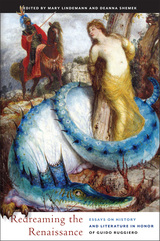
Redreaming the Renaissance
Essays on History and Literature in Honor of Guido Ruggiero
Mary Lindemann
University of Delaware Press, 2024
Redreaming the Renaissance seeks to remedy the dearth of conversations between scholars of history and literary studies by building on the pathbreaking work of Guido Ruggiero to explore the cross-fertilization between these two disciplines, using the textual world of the Italian Renaissance as proving ground. In this volume, these disciplines blur, as they did for early moderns, who did not always distinguish between the historical and literary significance of the texts they read and produced. Literature here is broadly conceived to include not only belles lettres, but also other forms of artful writing that flourished in the period, including philosophical writings on dreams and prophecy; life-writing; religious debates; menu descriptions and other food writing; diaries, news reports, ballads, and protest songs; and scientific discussions. The twelve essays in this collection examine the role that the volume’s dedicatee has played in bringing the disciplines of history and literary studies into provocative conversation, as well as the methodology needed to sustain and enrich this conversation.
[more]
READERS
Browse our collection.
PUBLISHERS
See BiblioVault's publisher services.
STUDENT SERVICES
Files for college accessibility offices.
UChicago Accessibility Resources
home | accessibility | search | about | contact us
BiblioVault ® 2001 - 2024
The University of Chicago Press




